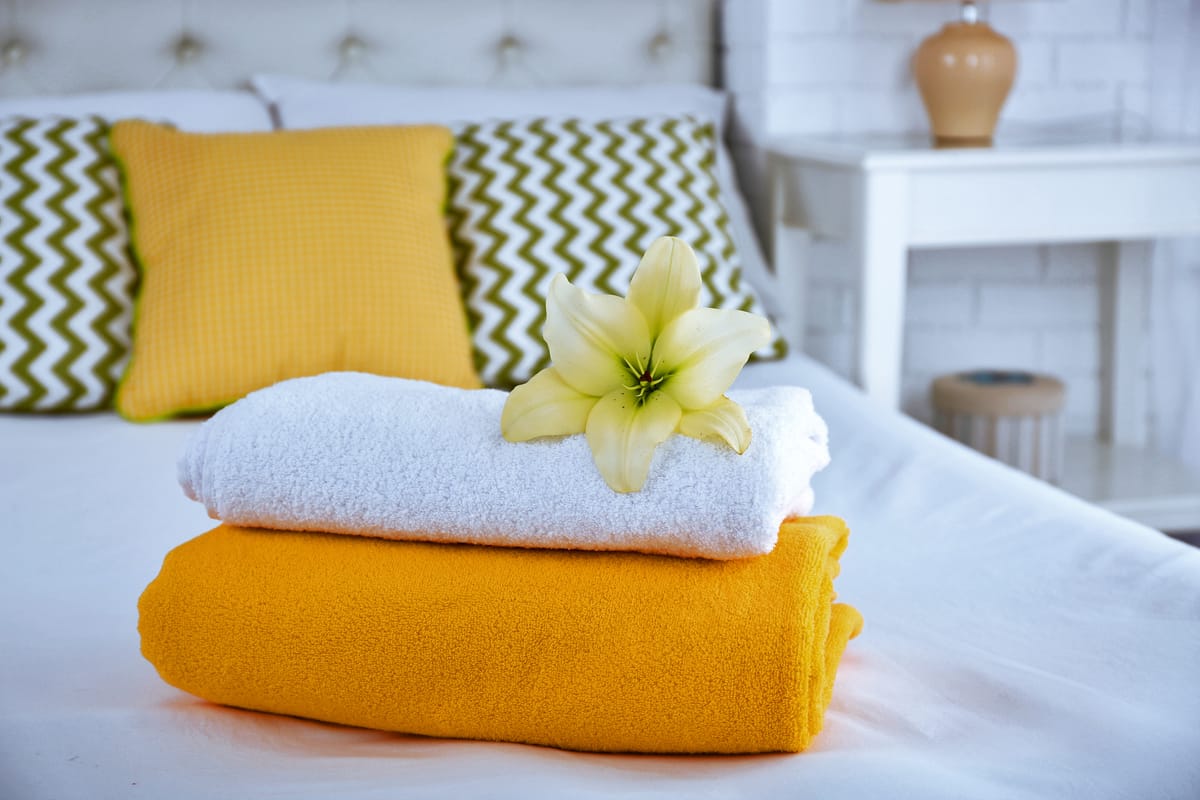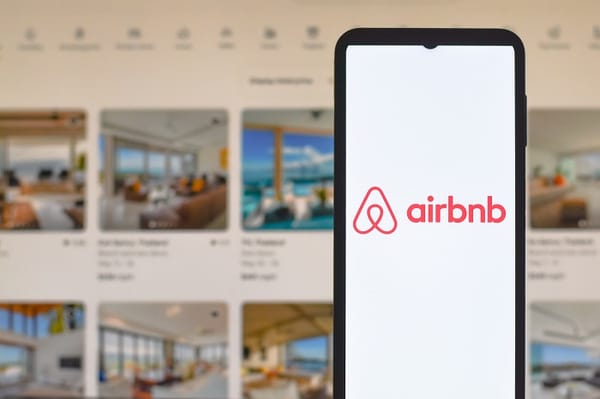Vrbo Hosting: Know This Before You Set Up Your Listing

Many hosts think of Vrbo hosting as a backup to Airbnb, a way to supplement short-term rental income and fill in the gaps on the calendar. But what if Vrbo could actually be more than just a secondary platform?
Vrbo attracts guests looking for longer stays and, often, high-quality bookings. In popular vacation spots, you can possibly charge higher nightly rates on Vrbo and could even keep your calendar fully booked on its own. Vrbo made an estimated $3.8 billion in 2024, making up 28% of the total revenue of Expedia Group, and had 18 million unique visitors in 2024. Most of the Vrbo visitors are from the U.S.
Even if you're just looking to diversify your income, it’s worth understanding how Vrbo hosting works. Let’s break it down, step by step.
How Do I Become a Host on Vrbo?
To become a host on Vrbo, you first need a rental home, naturally. The key is that you are renting entire homes or units: vacation homes, condos, apartments, cabins, cottages, farmhouses, villas, chalets, or maybe bungalows.
However, there's some due diligence to be done beforehand.
If you own the property, you're generally fine, as long as there are no restrictions from:
- Homeowners associations (HOAs)
- Building rules
- Local zoning laws
- City or county short-term rental regulations
Be sure to comply with all the laws and rules before moving forward with hosting on Vrbo.
How Is VRBO Hosting Different From Airbnb?
Vrbo has been around longer than Airbnb, but it has maintained its audience to this day. The main difference for hosts is that on Vrbo, you can only list entire vacation homes, meaning the whole unit. On Airbnb, on the other hand, you can also list shared spaces.
Vrbo tends to attract more families and large groups traveling to vacation destinations and planning longer stays, typically ranging from a week to a month or more. There are also differences in fee structures and platform organization, as well as many similarities.
Here’s how it works on Vrbo.
Step-by-Step Guide to Listing Your Property on Vrbo
Here's how to list your property on Vrbo with just a few taps.
1. Download the Vrbo Owner Mobile App
Download the Vrbo Owner app on your smartphone for a smooth mobile experience. The Vrbo Owner app is designed for Vrbo hosts and allows you to quickly reply, manage your calendar, reviews, and accept or decline bookings directly (although declining bookings is not advisable unless absolutely necessary). On the Owner app, you can create listings and upload photos.
2. Do Market Research on Vrbo
Besides local laws and local regulations regarding short-term rentals, property owners must research the local market and understand the booking patterns of Vrbo travelers in the local area.
MarketMarker is one of Vrbo's unique features. It helps Vrbo hosts make sense of the Vrbo platform data and gives hosts the inside scoop on what similar properties in their area are charging.
As a property owner, you can see precisely when travelers search for places like yours, and how your prices compare to the competition. You access MarketMarket via the Vrbo dashboard.
3. Create Your Listing
Listing creation has only one goal: to be compelling. You achieve that with professional-looking photos, a detailed description, and a catchy title.
Vrbo has a few sections to fill, like the About section, where you write specifics and amenities that stand out. Hosts can create their own FAQ section on Vrbo. The platform allows you to add and customize frequently asked questions specific to your property.
4. Set up Pricing and Payment Terms
If you’re listing your property on multiple platforms, you’ll probably want to keep your base price similar across the board. Sure, you can make some adjustments, as each platform has its own ecosystem and competition.
Next, Vrbo allows you to choose payment schedule terms. You can select either a 100% upfront payment or a split payment plan (e.g., 50% at booking and 50% closer to the check-in date).
5. Set up House Rules
House rules are defined through six key categories: maximum number of guests allowed, minimum age requirement for the primary renter, whether events are permitted on your property.
You'll also indicate if pets are welcome (a very popular search filter), whether children of different age groups are allowed, and your smoking policy. On top of that, Vrbo lets you add up to three custom rules to address specific dos and don'ts about your property.
6. Upload Rental Agreement
A short-term rental agreement is optional, but you can include one on Vrbo in addition to your house rules. It helps set expectations and offers stronger legal protection when guests agree to it upon booking request.
If you plan to host monthly stays, having a rental agreement becomes even more important as a form of legal protection.
7. Choose Your Preferred Cancellation Policy
Scroll down to the policies section on the property listing page and easily update how you want potential guests to be refunded (or not) for a canceled reservation.
Vrbo offers several cancellation policy options: No Refund, Strict, Firm, Moderate, and Relaxed. It's worth noting that Vrbo’s cancellation policies are generally stricter than those on Airbnb, and for reservations canceled closer to the check-in date, guests typically receive only a partial refund.
Must-Know Tips for Vrbo Hosts Before Getting Started
Here's what you need to know about hosting on Vrbo.
Is Co-hosting Allowed on Vrbo?
If you want a co-host to help manage your vacation rental, you can add one, but Vrbo doesn't have a dedicated feature. Hosts can contact Vrbo to add the co-host’s phone number for authentication, which allows them to access the Vrbo account. You're essentially sharing your log-in credentials and personal info with the co-host.
Another option is to give your co-host access through property management software like iGMS. The channel manager feature in iGMS allows a co-host to manage bookings, calendars, and guest communication across all other platforms, including Vrbo, from within the software.
What Are Vrbo’s Fees?
Vrbo offers two fee options for hosts. One is an annual subscription, which costs $699 per year.
The other is a pay-per-booking model, where you’re charged a 5% Vrbo service fee plus a 3% payment processing fee, totaling 8% commission per booking.
Does Vrbo Have a Host Protection Program?
Yes, Vrbo's $1M Liability Insurance provides owners and property managers with liability protection, offering $1,000,000 in primary coverage in case someone files a claim against you (e.g., injury during a guest’s stay, neighbor's damage claims).
This liability coverage does not include guest damages to your property. To protect your home and belongings, you’ll need a standard short-term rental insurance policy.
How to Qualify For the Premier Host Program
Property rental owners can earn the Premier Host badge, similar to Airbnb's Superhost status. To qualify for the Premier Host program on Vrbo, you need to meet the following requirements:
- An average review rating of 4.4 or higher
- A booking acceptance rate of 95% or higher
- An owner-initiated cancellation rate of 1% or lower
- Have 3 or more Vrbo reviews
- Have at least 5 bookings or 60 booked nights
Expect Your First Payout to Be Delayed Up To 30 Days
Vrbo’s policy for new hosts includes a delay in the first payout of up to 4 weeks. This delay is a standard part of Vrbo’s payment processing timeline for new hosts. But don’t worry! This only applies to the first payout. After that, hosts receive payments from Vrbo one business day after a guest checks out of their vacation rental.
Will I Be Listed on Expedia Automatically?
Yes, you can be listed on Expedia automatically through Vrbo’s Expanded Distribution Network if your listing meets the requirements. Your property must offer online booking and payments, be in good marketplace standing, and use Vrbo’s latest tools. If eligible, Vrbo will include your listing on Expedia and other travel sites like Orbitz and Trivago at no extra cost.
Integrating Vrbo with Your Property Management System to Manage Your Vacation Rental
For Vrbo hosts, using a PMS with a Channel Manager offers numerous benefits for their rental business. A Channel Manager enables hosts to manage all their listings across different platforms, such as Vrbo, Airbnb, and Booking.com—from a single dashboard.
As we've seen, while Vrbo doesn’t have a built-in co-hosting feature, you can easily add a co-host with the help of iGMS. iGMS is a reliable PMS that grants both co-hosts and property owners access to manage bookings, calendars, guest communication, and sync everything.



![How to Start a Property Management Company [9 Tips + Interview]](/content/images/size/w600/2026/02/Checkin-Interview.png)

